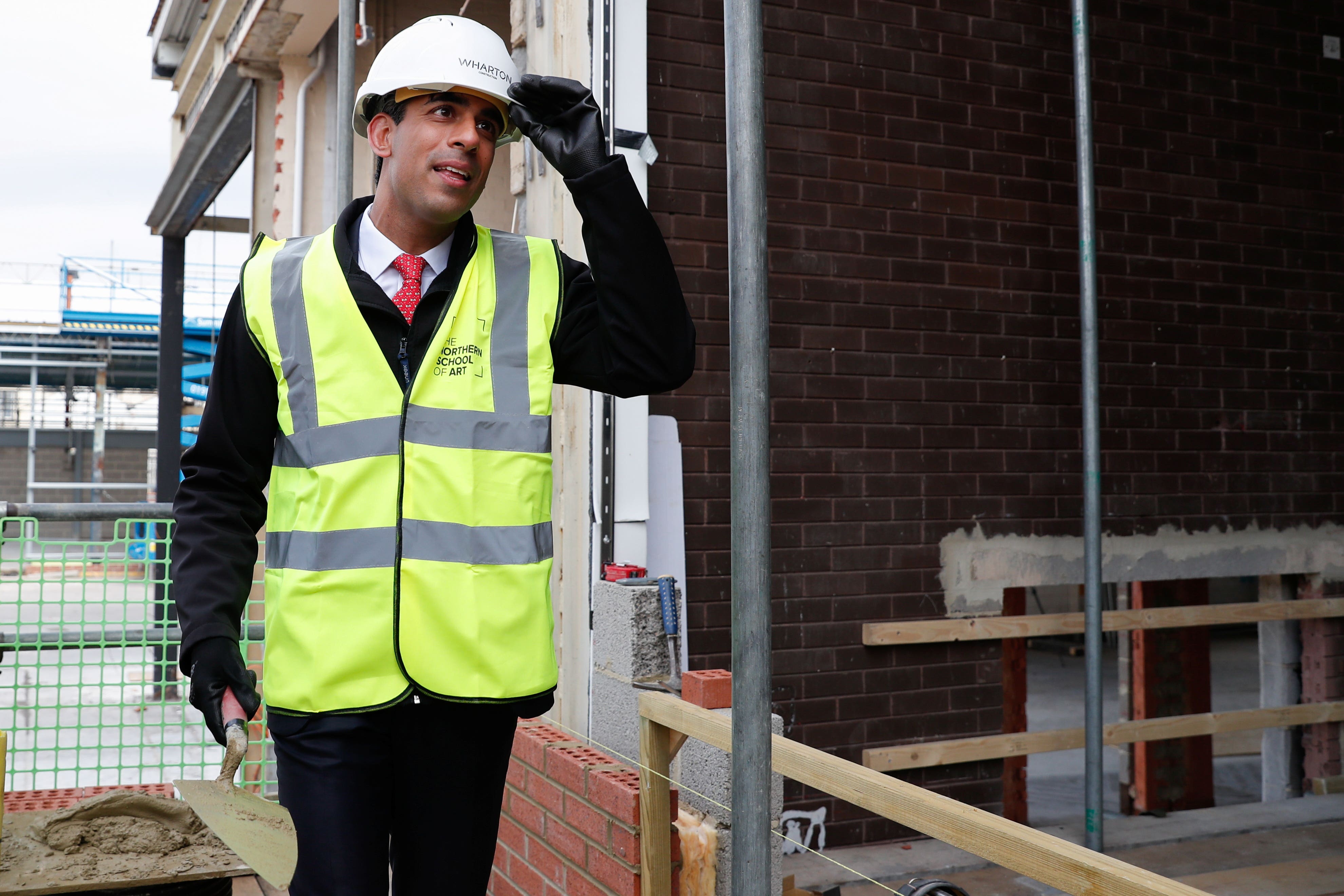No plans to scrap or delay Sizewell C, Downing Street confirms
The nuclear reactor remains ‘crucial’ to curbing the UK’s reliance on fossil fuels and boosting energy security at home, No 10 says.

Your support helps us to tell the story
This election is still a dead heat, according to most polls. In a fight with such wafer-thin margins, we need reporters on the ground talking to the people Trump and Harris are courting. Your support allows us to keep sending journalists to the story.
The Independent is trusted by 27 million Americans from across the entire political spectrum every month. Unlike many other quality news outlets, we choose not to lock you out of our reporting and analysis with paywalls. But quality journalism must still be paid for.
Help us keep bring these critical stories to light. Your support makes all the difference.
Downing Street has insisted there are no plans to scrap or delay the construction of the Sizewell C nuclear power plant as Rishi Sunak seeks to tighten the public purse strings.
The Government’s position on the multi-billion-pound project has “not changed”, No 10 said, as the nuclear reactor remains “crucial” to curbing the UK’s reliance on fossil fuels and boosting energy security at home.
It is hoped a deal will be reached with energy firm EDF, who are expected to build the reactor, “as soon as possible”, the Prime Minister’s official spokesman said.
It had been reported the development was under review as ministers look to find £50 billion in spending cuts and tax hikes, with a Government official earlier telling the BBC: “We are reviewing every major project – including Sizewell C.”
One senior Treasury source backed this, stressing “we’re looking at all capital spending”, despite sources elsewhere, including in the Department for Business, Energy and Industrial Strategy, insisting the project was not being canned.
No 10 confirmed on Friday there had been no change in its position, stressing: “It’s not accurate to say we are scrapping it.”
“It remains crucial to reducing our reliance on fossil fuels, increasing our energy security and meeting our net-zero ambitions,” the PM’s spokesman said.
“We hope to get a deal over the line as soon as possible, there are negotiations (with EDF) ongoing.
“Negotiations have been constructive.”
Boris Johnson promised £700 million of taxpayers’ money to the development in his final policy speech in early September as he sought to make energy security part of his legacy as prime minister.
The total cost of the Sizewell C project could be around £20 billion, according to reports.
It is not expected to begin generating electricity until the 2030s; the similar reactor at Hinkley Point C in Somerset began construction in 2016 and will not be online until 2027, although this is partly due to the impact of the pandemic.
Proponents of the site say it can help get the UK to run on zero-carbon power, but others say the cash would be better spent on wind farms or insulation.
The Government is seeking opportunities to reduce spending to address a multi-billion-pound hole in the public finances, as it aims to put economic stability front and centre in the wake of the market chaos sparked by the previous administration’s calamitous mini-budget.
It comes as the country has been struck by more bleak economic news, with the Bank of England hiking interest rates for the eighth time in a row and the UK heading into what could prove the longest recession in at least a century.
The Chancellor acknowledged the difficulties facing homeowners and businesses after the Bank put up its base rate from 2.25% to 3% on Thursday, the highest for 14 years.
He said there were problems affecting economies around the world, but Rishi Sunak would “fix” the issues caused by Liz Truss and Kwasi Kwarteng in September’s ill-fated £45 billion tax giveaway.